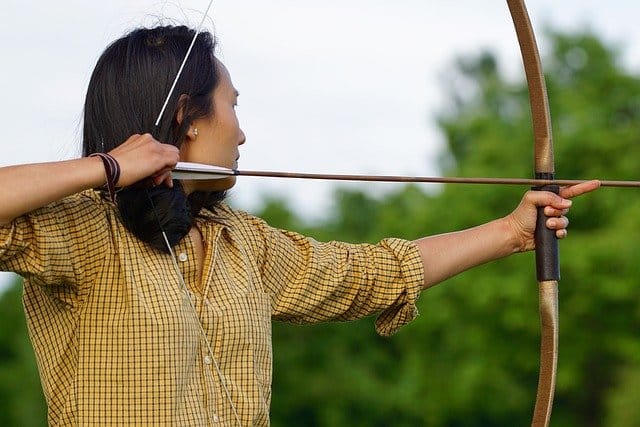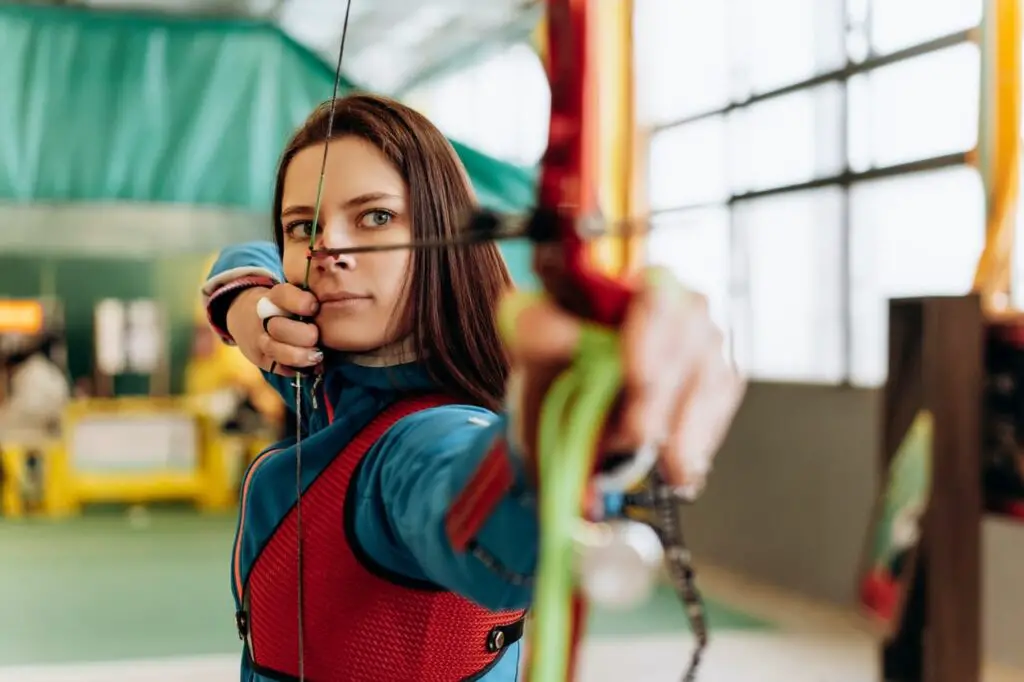Archery involves using bows and arrows to hit distant targets. But does nocking arrows and letting them fly constitute a true athletic sport? Archery lacks some typical sport traits like direct competition and defense. Yet archery still requires immense physical and mental skill. So is archery a legitimate sport?
This article examines archery’s merits and misconceptions to answer the question once and for all – is archery actually a sport? Read on to gain a definitive understanding of archery’s rightful place in the pantheon of athletic competition.
Defining Sport Characteristics
Before evaluating archery, it helps to define what constitutes a sport. While definitions vary, most sports share certain traits like:
- Competition between opponents
- Defense, obstruction, or interference against competing players
- Established rules and point-scoring systems
- Requirements for physical skill and athletic attributes like strength, speed, agility, etc.
- Standardized equipment and playing areas
Sports also typically involve team cooperation and interaction between players during live-action play. Sports are governed by leagues and organizations that standardize rules.
Analyzing Archery’s Sport Qualities
When evaluating archery against core sport criteria, how does it stack up?
- Competition: Archery tournaments clearly pit opponents against each other in a battle for highest scores. Head-to-head matchups are direct competitions.
- Physical athleticism: Mastering archery absolutely requires athletic attributes like coordination, precision, strength, stamina, and concentration. Proper shooting form and repeatability involve immense physical skill.
- Standardized equipment/venues: Archery competitions mandate use of regulated bows and arrows. Shooting takes place on standardized ranges with common target types and distances.
- Established rules and scoring: Archery features detailed competition guidelines and scoring systems monitored by judges. There are clear methods for scoring arrows and determining winners.
So by multiple definitional standards, archery qualifies as a legitimate athletic endeavor. Where archery falls slightly short is its lack of direct defense against opponents. Without live obstruction, some question archery’s sporting merits.
Making the Case for Archery as a Sport
While archery may not fit all traditional sport molds, there are many reasons why archery still warrants consideration as a full-fledged sport:
- Live head-to-head competition: While archers don’t directly affect opponents, match play is still live, simultaneous competition between opponents. Players closely watch rivals’ scoring as the action unfolds.
- Equal playing field: All archers compete on the same range under the same standards. Victory goes to the most skilled archer overall.
- Physical demands: Top archery requires tremendous strength, stamina, hand-eye coordination, and focus – all key athletic attributes. Fatigue absolutely factors over long competitions.
- Very low margin for error: Hitting tight groupings on target centers demands tremendous precision and repetition. The pressure for accuracy is physically and mentally taxing.
- Extensive skill development required: Mastering consistent archery form, release, and follow-through takes years of training and technique practice. It’s not something casually picked up.
So despite some unorthodox qualities, archery entails most core elements defining sports. The physical and competitive rigor archers must hone warrants archery’s classification as a sport.
Archery Performance Parallels Other Sports
Beyond intrinsic elements, archery matches statistical markers indicating elite sports:
- Precise shot consistency: Like free throw shooting percentages, archery rewards competitors who can repeatedly hit fixed targets at high rates. Variability means worse scores.
- Quantifiable performance metrics: Archers have percentage indicators like 60/60 end scores providing objective performance data to analyze and improve.
- Marginal gains matter: Like batting average differences in baseball, seemingly small archery improvements yield tangible scoring gains and competitive advantage.
- Championship performance: Reaching archery’s highest levels requires pro-caliber dedication, training, skill development, and execution. Champions are the product of athletic performance combined with rigorous data-driven improvement.
So by sports’ key statistical measures, archery performs very similarly to undisputed sports like basketball, baseball, golf, and others. The numbers corroborate archery’s sporting merits.
Archery Requires Elite Athleticism
Make no mistake – excellence in archery requires true athleticism. Consider Olympic archer Brady Ellison’s amazing abilities:
- Can shoot arrow groupings smaller than a coin at 70 meters (~230 feet) distance.
- Hits bullseyes smaller than 3 inches over 90% of the time from 50 meters.
- Can control heartrate and enter “zone” concentration to excel under pressure.
- Has strength and stamina to shoot sets of 36 arrows while maintaining precision.
- Relies on core power and back strength to draw and stabilize heavy bows.
These capabilities take immense natural talent honed over years of dedicated training and competition. Brady Ellison demonstrates archery lies squarely in the realm of elite athletic performance.
Final Thoughts: Archery is Undoubtedly a Sport
While archery occupies its own unique niche, the evidence conclusively demonstrates archery’s merits as a legitimate sport:
- Archery mirrors recognized sports in skills required and statistics produced.
- Mastery demands pro-level dedication, training, and precision performance.
- Competition involves live, pressurized showdowns between closely-matched opponents.
- Physical and mental excellence dictate who prevails in archery competitions.
No longer can detractors claim archery is merely a casual hobby or activity for the unathletic. The next time someone questions archery’s qualifications as a sport, reference the facts. Archery deserves respect and recognition as a demanding athletic pursuit in its own right. Just ask Olympic gold medalist archers if they consider themselves athletes.
How many calories do you burn when bowling?


